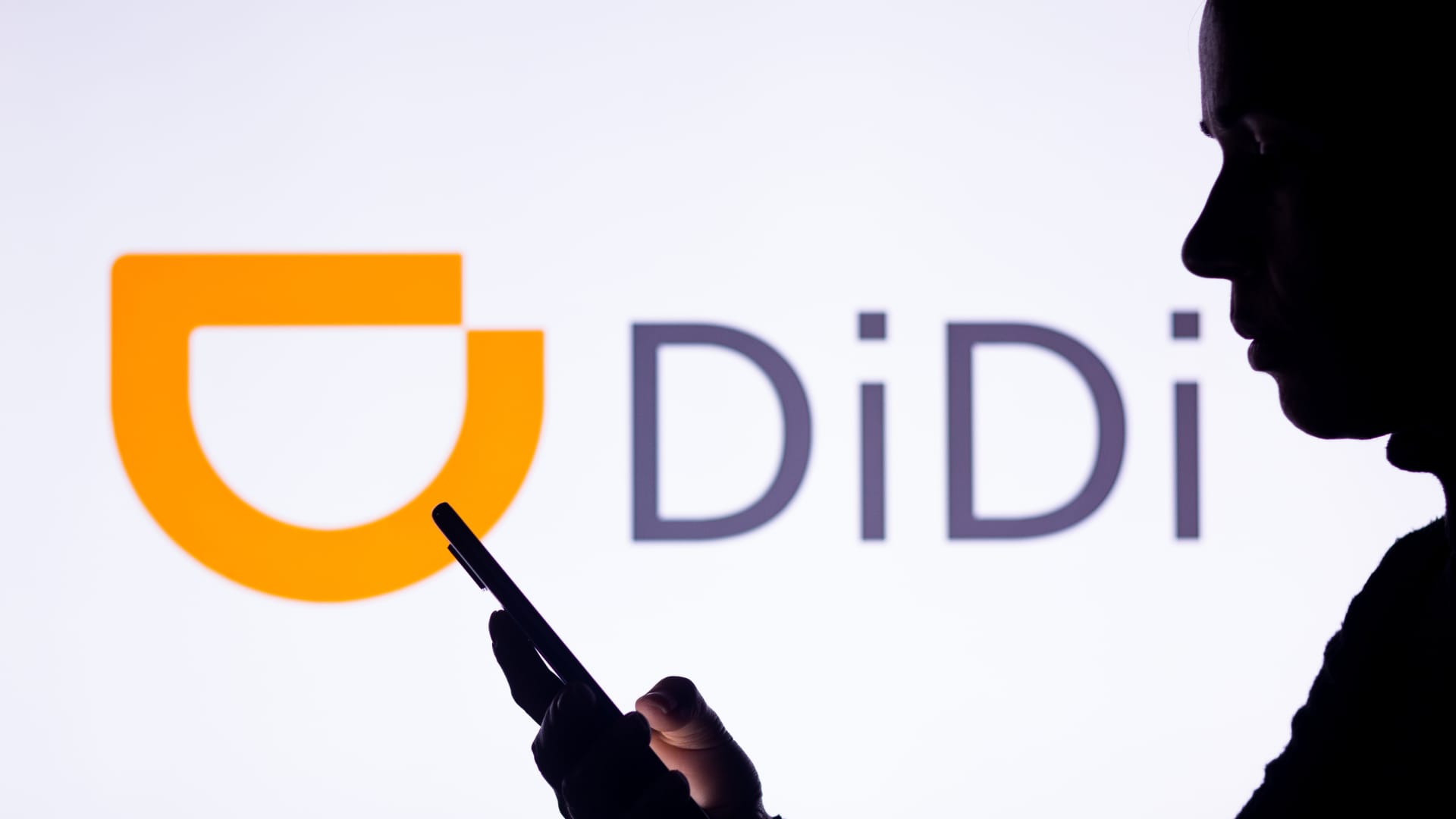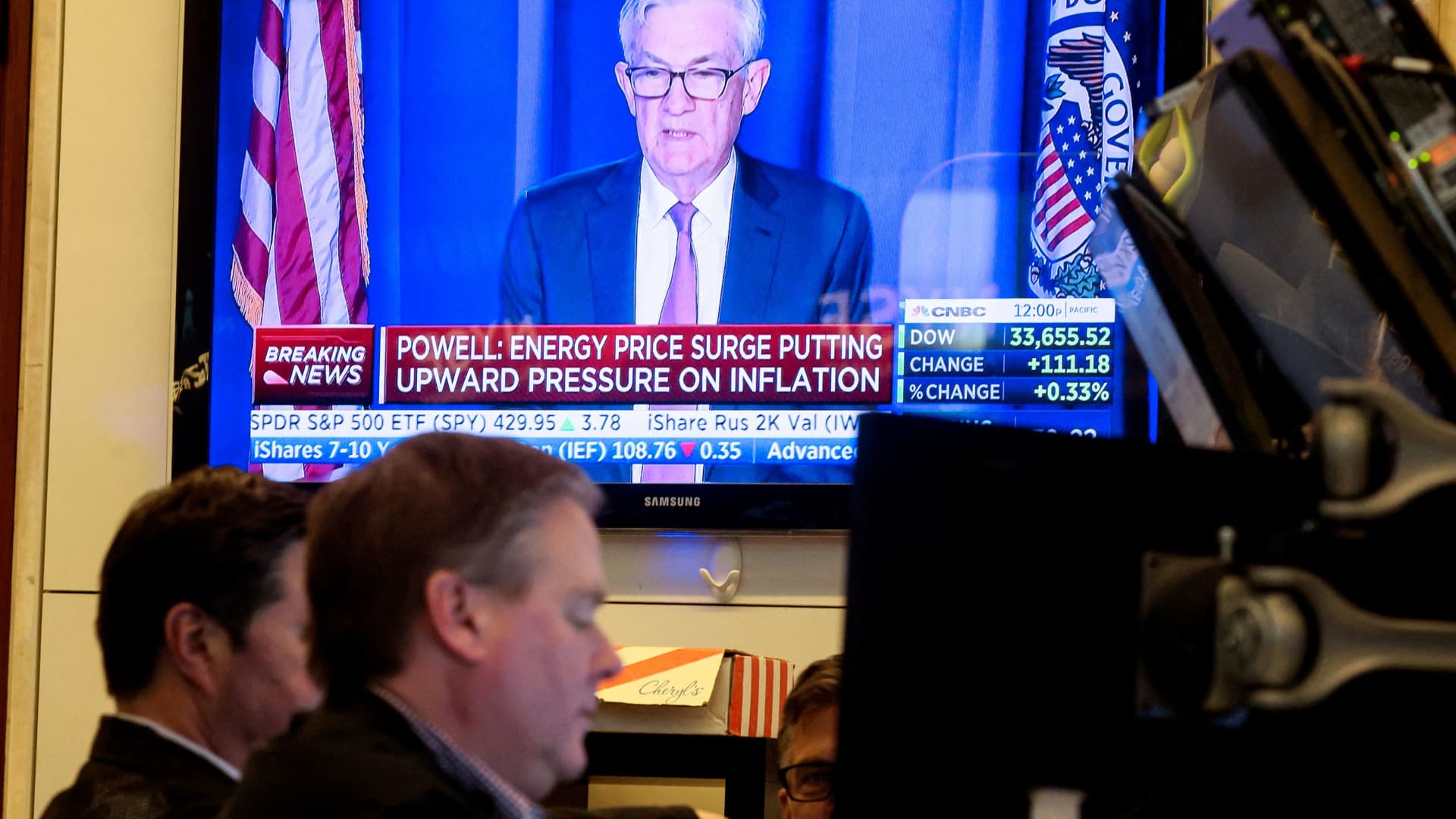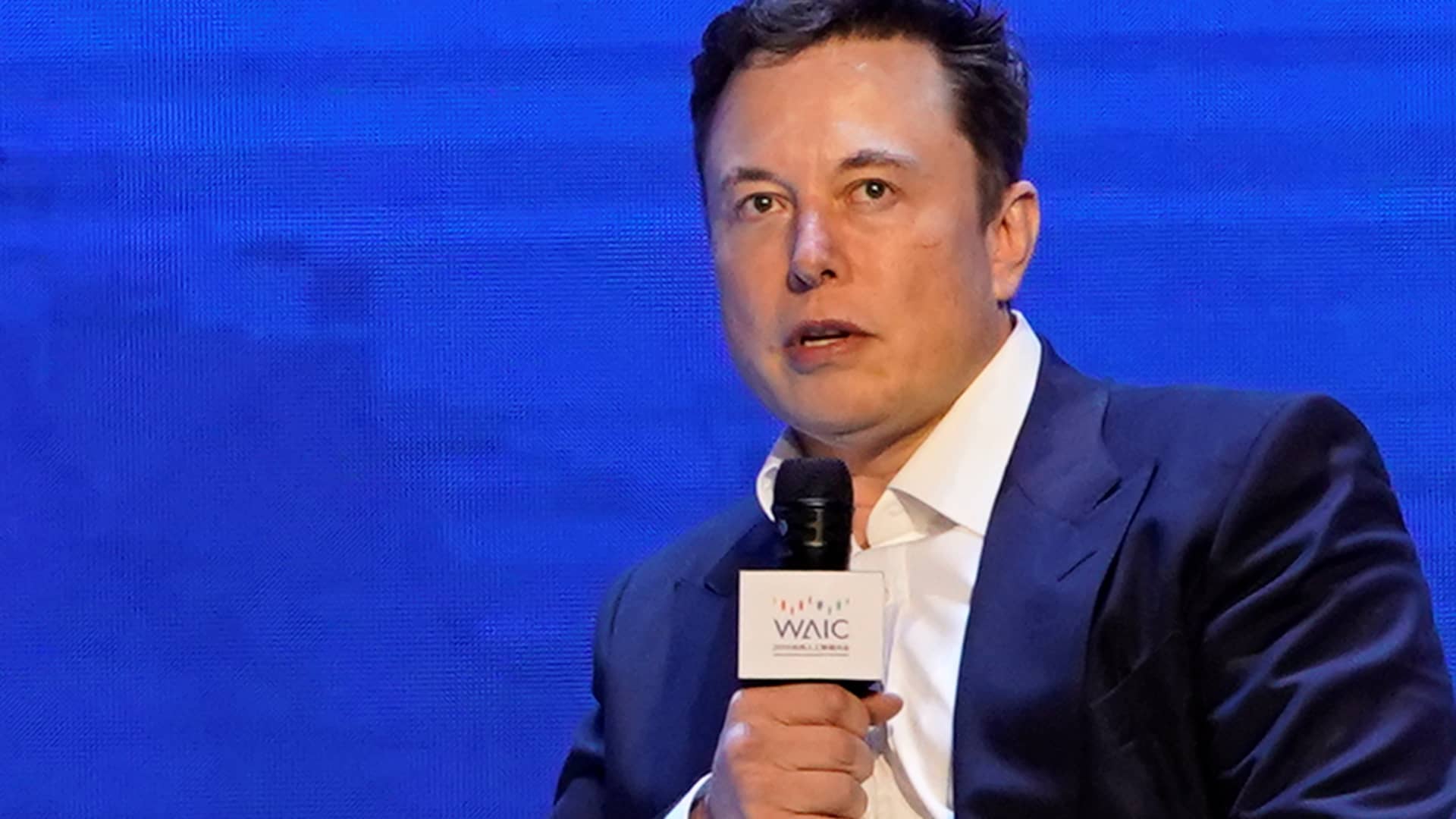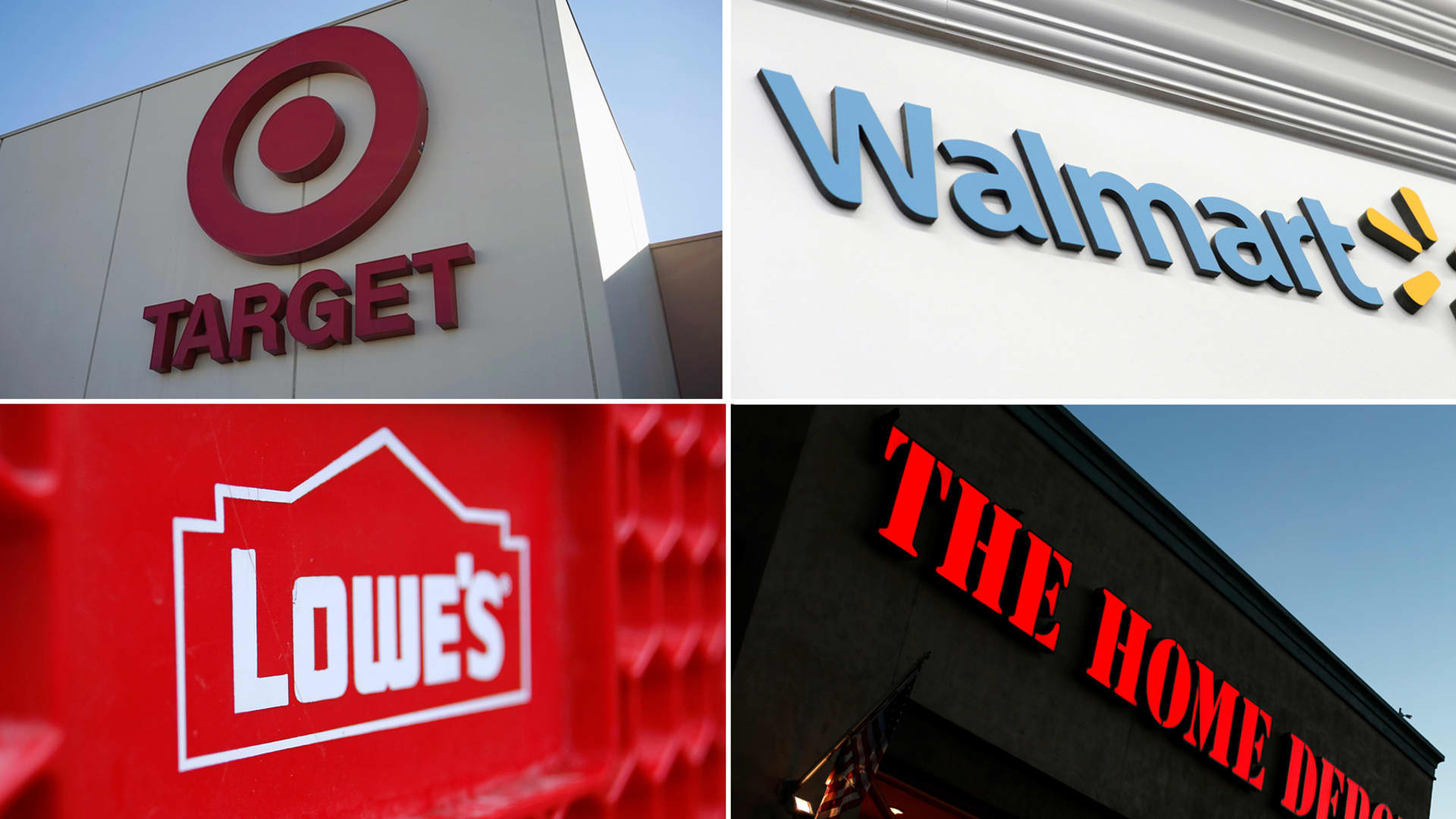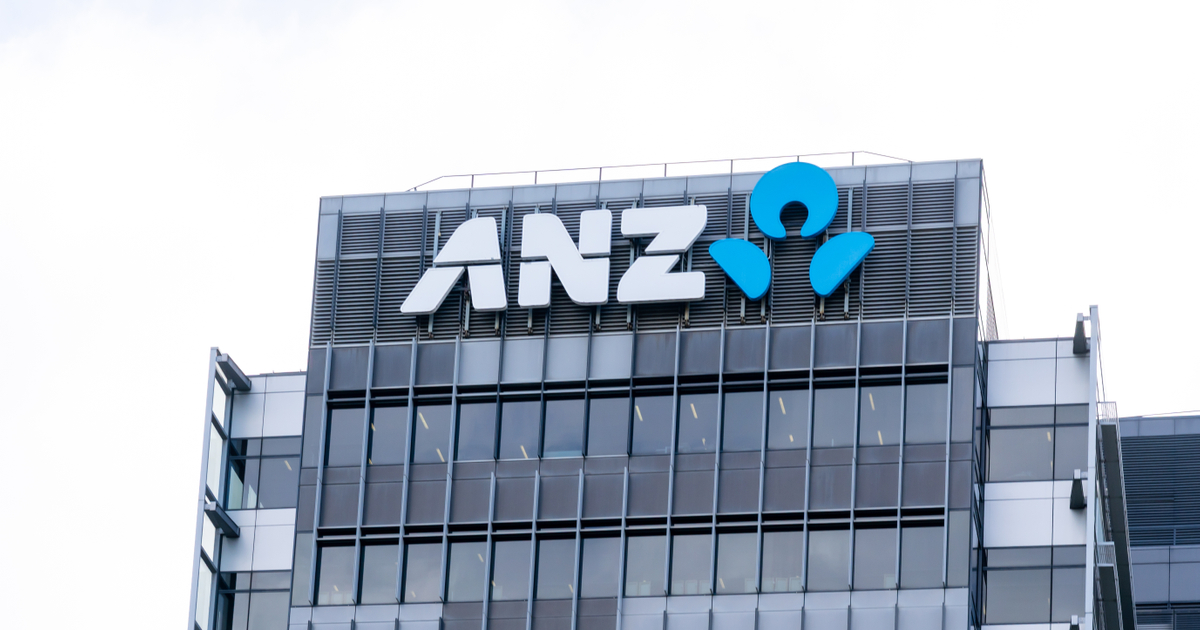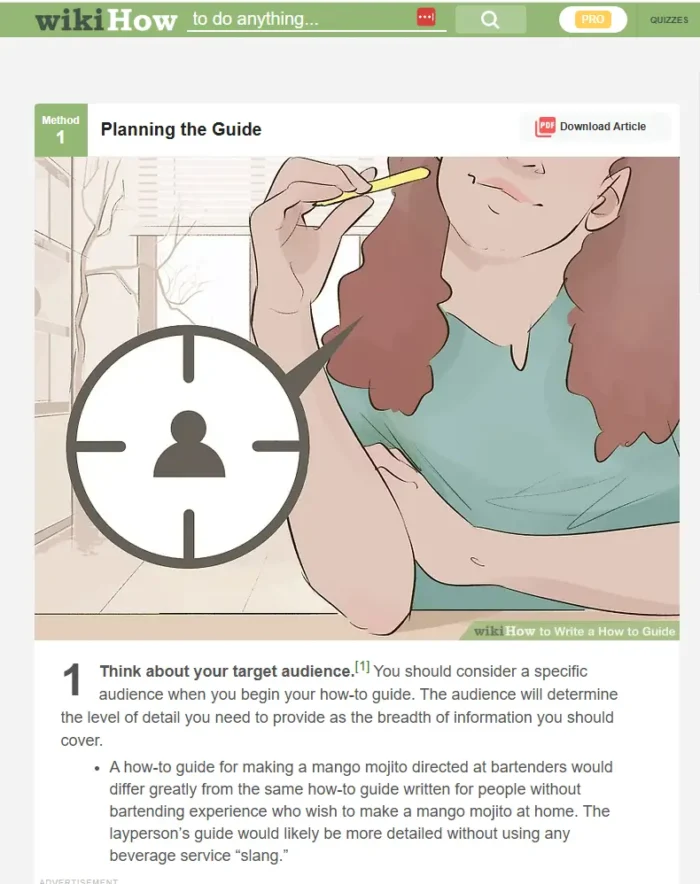Assassin's Creed maker Ubisoft sinks to seven-year low after slashing guidance, cancelling games
Ubisoft shares slumped as low as 18.80 euros apiece Thursday morning, hitting their lowest level in more than seven years.
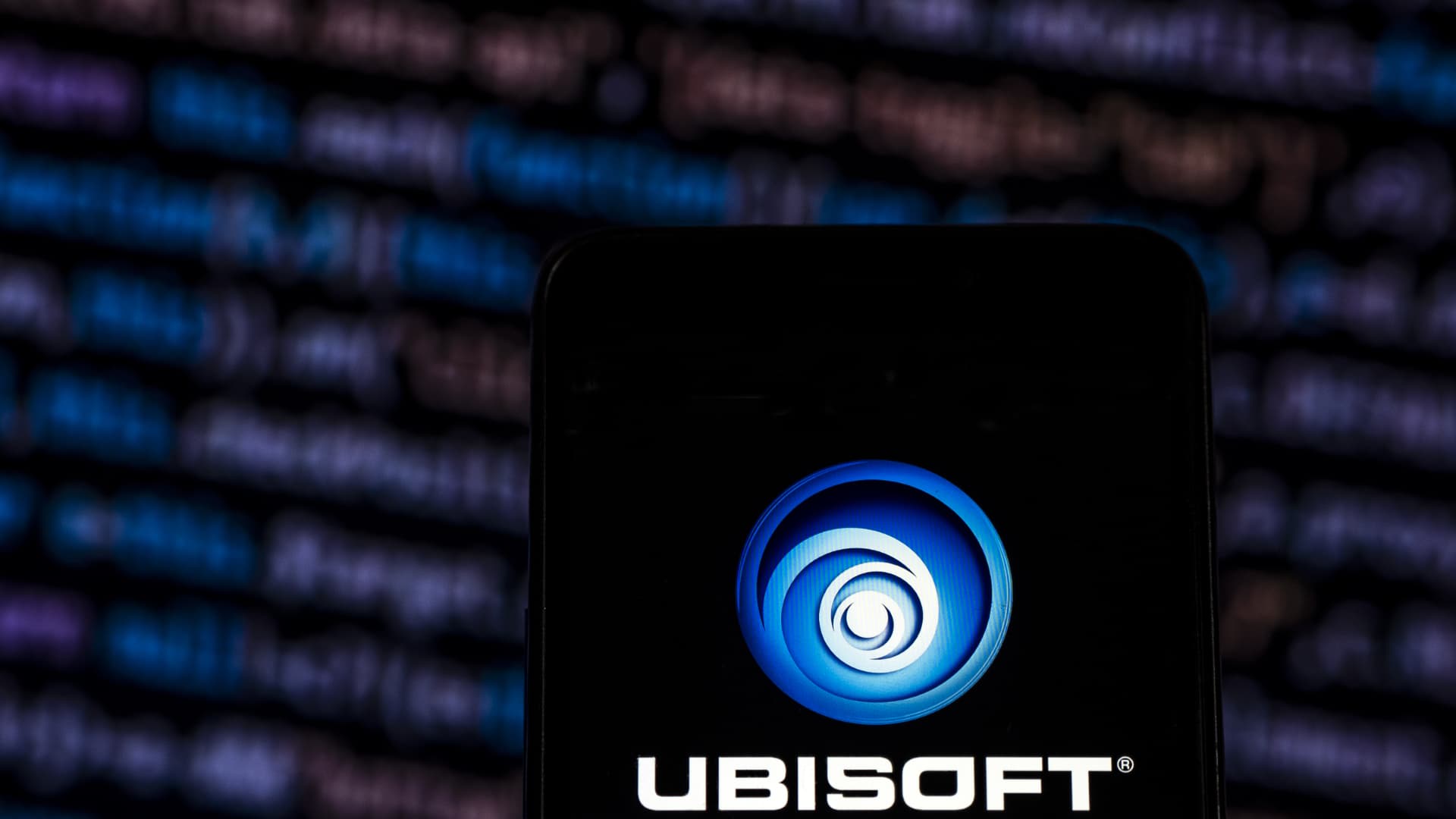
In this photo illustration, the Ubisoft video game company logo seen displayed on a smartphone.
Igor Golovniov | SOPA Images | LightRocket via Getty Images
Ubisoft shares plunged 21% on Thursday after the French video game maker reduced revenue guidance, cancelled three titles and pushed back the release of its upcoming Skull and Bones game.
The company's share price slumped as low as 18.80 euros apiece shortly after the market opened, hitting its lowest level in almost seven years. The stock has since pared losses slightly and was last trading at around 20.64 euros, down 14% from Wednesday's close.
In a trading update on Wednesday, Ubisoft lowered net bookings guidance for the third quarter of 2022 to 725 million euros, down from an earlier target of 830 million euros. The company forecast full-year net bookings would likely fall 10% after an earlier projection called for an increase of 10%.
The company, which is best known as the publisher of hit franchises including Assassin's Creed and Far Cry, cited poor performance of its Mario + Rabbids Sparks of Hope and Just Dance 2023 titles, as well as a challenging economic environment.
"There's a fair amount of 'battening down the hatches' going on globally as it relates to the games industry," Lewis Ward, research director of gaming at IDC, told CNBC.
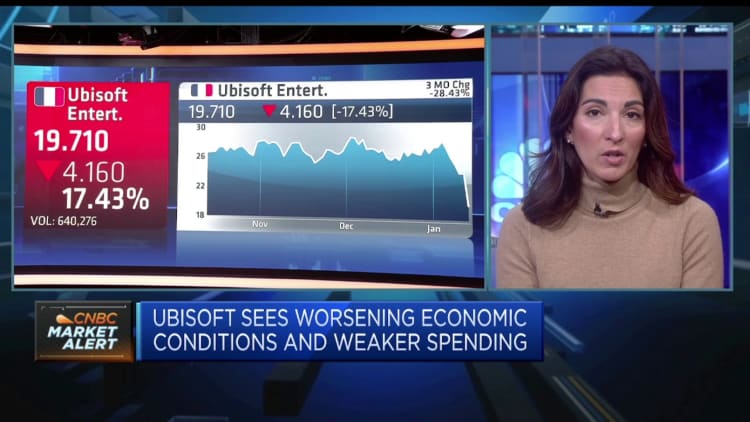
"There were huge 20-30% revenue surges when COVID hit, and in 2023 we're dealing with ongoing denouement of the COVID-induced spending spike, plus concerns about a potential recession and ongoing inflationary and supply chain challenges in North America and Europe especially, plus, of course, the ongoing fallout of Russia's invasion of Ukraine."
Consumers are cutting back on discretionary purchases in response to higher prices and borrowing costs. Gaming has especially come under pressure. The industry was expected to contract 4.4% year-on-year to $182 billion, according to a November forecast from market research firm Ampere Analysis.
Ubisoft is the third gaming firm this week to issue a disappointing trading update. Devolver Digital and Frontier Developments posted profit warnings on Monday, citing a weak trading environment in December.
"This reveals that the macro-economic environment is having an impact on premium games sales to an extent," Piers Harding-Rolls, research director for games at Ampere Analysis, told CNBC via email.
"However, I think it is likely that the economic backdrop will impact some companies more than others," he added. "For example, we've already noted how the biggest AAA console releases have sold well — FIFA, God of War, CoD [Call of Duty] — so I think it's too early to assume all major publishers will be in the same position as these three companies."
The gaming industry seeing increased consolidation, including Microsoft's mega acquisition of Call of Duty publisher Activision Blizzard and Sony's purchase of Destiny developer Bungie. Analysts view Ubisoft as a potential takeover target. Its share price sank more than 38% in 2022, wiping off 3 billion euros from the company's market value.
In September, Tencent upped its stake in the company in a deal that made the Chinese tech giant Ubisoft's largest shareholder. The purchase gave Tencent an overall stake of 11%, including indirect ownership, and an option to increase its interest further to up to 17%.
Analysts at the time said that the stake purchase had dampened hopes of a takeover. As part of the deal, Tencent won't be able to sell its shares for five years and can't increase its direct stake in Ubisoft beyond 9.99% for a period of eight years.
Ubisoft said Wednesday that it would depreciate around 500 million euros of capitalized research and development and narrow its focus to fewer titles. It shelved three unannounced game projects and delayed the release of its upcoming Skull and Bones pirate game until a period between early 2023 to 2024.
The company hopes to cut costs by about 200 million euros through a mix of targeted restructuring, divestment of "non-core" assets, and employee attrition. It has about 1.4 billion euros of cash and non-cash equivalence on its balance sheet.

 Lynk
Lynk 







